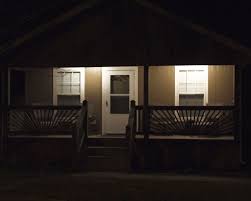
The future is an interesting beast. It is always “out there” and yet nearby. You don’t know when it will arrive, just that it will. And when it does, it dies like the honey bee that’s delivered but one sting. No longer is it the future. Instead, too briefly to define, it’s now the present, and then the all-consuming past.
When I think of time, I think of Cronus consuming his children. The insatiable past keeps swallowing the future as it tumbles through the present’s quick portal. The regurgitation part of Cronus’s story serves metaphorically as memory.
Poetry is uniquely adept at tackling poems about time, and I collect them. Janus would be proud, whether the calendar says January (look back, look ahead) or not.
Here’s a “for example” that fits the bill. It is Mark Jarman’s poem “The Children,” which asserts that children know something we don’t — even though we were once children. Koans like that make the poetry of time interesting to read.
Go ahead. Sit by the grandfather clock and enjoy:
The Children
Mark Jarman
The children are hiding among the raspberry canes.
They look big to one another, the garden small.
Already in their mouths this soft fruit
That lasts so briefly in the supermarket
Tastes like the past. The gritty wall,
Behind the veil of leaves, is hollow.
There are yellow wasps inside it. The children know.
They know the wall is hard, although it hums.
They know a lot and will not forget it soon.
When did we forget? But we were never
Children, never found where they were hiding
And hid with them, never followed
The wasp down into its nest
With a fingertip that still tingles.
We lie in bed at night, thinking about
The future, always the future, always forgetting
That it will be the past, hard and hollow,
Veiled and humming, soon enough.
I don’t know about you, but I read this and get the feeling that the future and past are like Romulus and Remus, or Cain and Abel, maybe. Fatally bound together, sometimes in perplexing ways, but always in thought-provoking ways.
And me, I like thought-provoking. In poems that stir the pot — the one bubbling with futures simmering down to the past. Can you smell it in the air?
